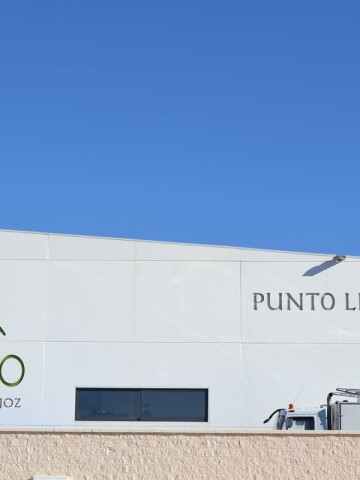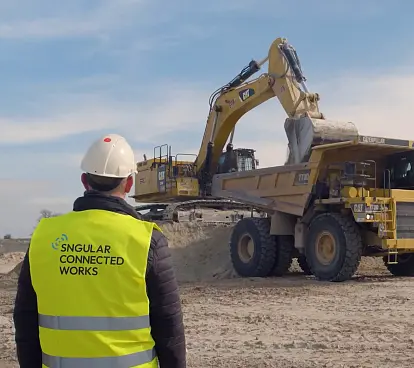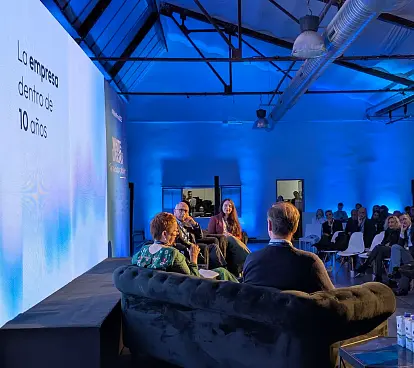
PROMEDIO: optimization of public services
November 16, 2022
For the last couple of years, SNGULAR has been working with the public sector, helping government bodies digitize and providing applications or developing management platforms. In this case, the call came from the Provincial Council of Badajoz in the Spanish region of Extremadura. They need our help with the management platform used in the Promedio Consortium to manage garbage collection and recycling.
Promedio is a public agency that manages local environmental services. It’s main focuses are the full water cycle (potabilization, supply and purification) and waste management.
The Challenge
Promedio needed to reduce costs in its investment in applications and avoid vendor lock-in or software obsolescence.
When they contacted us, they were paying a monthly fee for the application, on top of any updates or functionalities they wanted to integrate separately. They asked us for two things: they needed the development of this solution to be entirely from the Consortium. It had to be combined with their system and other data collection applications.
In addition, new functionalities were added, such as route optimization and access to ad hoc functionalities that the commercial solution did not cover.
The Solution
With these premises, SNGULAR proposed a solution that would not be oversized and would fit their needs, so they looked for a solution based on white-label devices with generic features and a large capacity for expansion or development.
With the proposal of public devices, with a middleware that increased its interconnection versatility, and being the software owners, we managed to have a contained cost of the waste management application and thus meet the milestones that we had set.
Development with the client
At SNGULAR, we work hand in hand with the Consortium and thinking that it is the best for both parties, we contacted suppliers of generic devices, looked for the ones that best suited their needs, and made a proposal.
The platform, developed for internal use by the Consortium, provides data on the trucks collecting and recycling garbage. It gathers information on various parameters such as vehicle location, speed, engine running, camera sensors, electric arm sensors, volumetric sensors, etc.
With this data, the Consortium can solve problems on the spot and manage better routes, times, and speeds of the trucks.
Not only reducing costs but also giving a quick response to the users of towns and regions of Badajoz. And demonstrating its commitment to the environment by reducing vehicle consumption.
Miguel Ángel Vargas, Business Manager at the Badajoz office, tells us that involvement in the project was 100% from start to finish:
"They are a small public company, and their rhythms are very collaborative and focused on helping us and making our work easier. They like to try new initiatives and suggestions."
Miguel Ángel Vargas
Functionalities provided
The platform collects data thanks to sensors placed on all waste collection vehicles. With this data, it is possible to make decisions on route optimization, calculate which is the shortest route between collection containers, and have other types of information such as whether routes are being followed, whether collections are made in the containers of each population, times and consumption.
Types of alarms and warnings provided by the platform:
- Maintenance:
- Control of kilometers driven.
- Alarms of the vehicle itself such as revision, wear, and tear.
- Exit or entry of a specific area, the definition of geo zones.
- Speed alerts
- Point histories, exportable
An intermediate layer, or middleware, was developed, located between the locator devices and the data capture, with a set of services that facilitate integrating different hardware devices or mobile applications.
The application is structured in different layers and APIs, which facilitate the integration of any external system. In addition to being scalable and modular, the client is the owner of the code.
The data captured by this platform is eventually published on an open data website of the Provincial Council of Badajoz and is published to show transparency to the users of Badajoz.
Back to simplicity and to help the Consortium, the dashboard provided to Promedio is free software templates, where no design intervention is needed to interpret these data.
Our latest news
Interested in learning more about how we are constantly adapting to the new digital frontier?

Insight
December 26, 2025
Ferrovial improves heavy construction efficiency with ConnectedWorks

Event
November 24, 2025
White Mirror 2025: the blank mirror reflecting what is yet to come

Insight
October 17, 2025
How to transform Customer Experience dashboards into intelligent decisions
